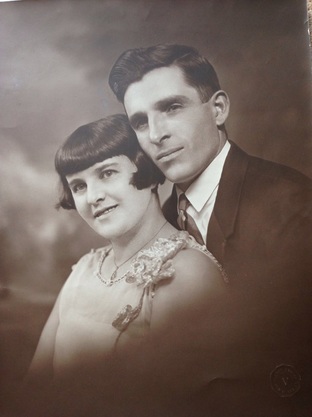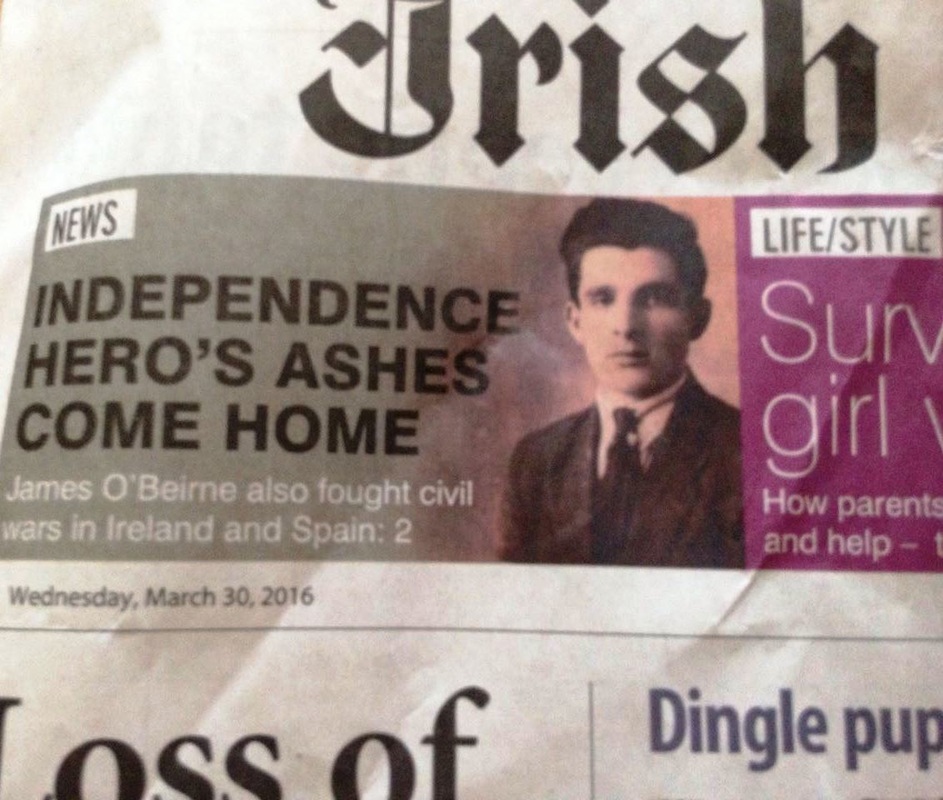|
DISCOURSE ON DISAPPOINTMENT
Who gets to be a hero? what happened to the women? In Beijing 2012 I curated an exhibition entitled ‘Intimate Revolution: Discourse on Disappointment’ where artists explored the experience of women at times of social change and upheaval. I dedicated this exhibition to my grandmother Rita O’Beirne née Mintern, because what happened to her on a personal level was so typical of women’s experience globally. What is that experience? It is obliteration, being written out of history, being excluded from the new corridors of power, being expected to put up and shut up, being profoundly disrespected on every level. Has this changed? Well no, women in Cairo who were fashionably dressed successful business women and or well educated professionals 25 years ago are now covered up with veils and afraid to walk the streets in case they are aggressed and sexually assaulted for appearing in public. Those women who protested in Tahir Square were cowed into submission when digitally raped by large groups of men, spat on, abused and threatened. These were the groups of men which the women had come out to support – to plead their case, to protest as comrades, ah…. there’s a tale of betrayal, a tale of profound and ongoing disappointment. Was it any different for the women (and girls) who fought in the War of Independence? Maybe not the gang digital rapes but in other ways, frighteningly similar. Those Irish women lived in a world where rape went unreported because they would be blamed for inciting it, where they were not allowed to control their own fertility (contraception was not legal until 1980) they were not allowed to divorce abusive partners (divorce was legalised in 1996), where Ireland’s abortion requirements were shipped over to the UK to maintain the country’s ‘pure’ reputation (still the case), where they were supposed to give up their jobs when they got married and God help them if they were deserted, because nobody else was going to. The Irish Examiner published an article recently about James O’Beirne - my grandfather – and his ashes being brought back to Cork for a ‘hero's burial’. My grandmother who was at his side and was a member of the Cumann na mBan, who smuggled guns for him in a specially made corset, who raised money for the IRA with him (not sure if this can be counted as heroics….) was not mentioned. She was the breadwinner throughout their 9 years together in New York (1923-32) working as an Irish dancing teacher, she later bailed him out of financial trouble by selling her business when he had no one else to support him. Their daughter, my mother was not mentioned either, they have been excised from the narrative. James (Jimmy) and Rita did not have a flash in the pan marriage, they were together from 1923 and married in New York on November 16 1926, I wear my grandmother’s wedding ring engraved with their initials and date of the wedding. They came back to Ireland in 1932/3 because my great grandmother was dying and Rita nursed her. My mother Frances Nuala O’Beirne was born on Christmas day 1935 and Jimmy was officially living with them until 1939 when he returned to live in New York, so that he could continue to raise funds for the IRA, or so the story went for them. The heart of this ‘micro history’ is all about secrets and lies. Rita set up a restaurant over what used to be the Saxone Shoe shop on Patrick Street, she had a good business head and lived with her father, her sister and her daughter at no 3 Cornmarket St, where I grew up years later. Rita taught me to sing ‘twas down by the glenside’ when I was a small child – I got the words wrong and at the end of one of the verses I sang ‘we may have good men now but our women are better’ and I remember her bursting out laughing and saying ‘you’re right there!’ When my mother was 12 years old Jimmy came back, he was on the run again and needed a lot of money, so my grandmother, obviously being irredeemably naïve, sold up her business and gave him the money. What he had not explained was, that in the intervening years, despite the florid love letters, which I read as a curious child foraging in the attic, he had divorced her in absentia, married Elaine Lambert Lewis and his son John Ranalagh, (as featured in the Irish Times article) my mother’s half-brother, was by then 3 years old. My mother’s last memory of her father was seeing him on the street in Cork, he crossed the road and put his arm on her shoulder saying ‘I’ll see you soon Nuala’. She never saw him again. There followed many years of financial hardship for Rita’s family, they also ran an ‘antique’ shop which was really more bric a brac and second hand goods, but they had to keep their end up. What was really amazing about all of this was that Jimmy’s family refused to reveal his whereabouts to my grandmother and continued to tell her that he’d gone off somewhere to fight and had probably been killed - but they couldn’t be sure! I’d heard about Jimmy going to fight in the Spanish Civil War and years later when John Ranalagh, his son by his second marriage, came to dinner at my house he was able to fill in some of the gaps. John is a very interesting and engaging man and told me that his father had also been on the Long March in China with Mao Zedong, this was a gripping piece of information for me because of my ongoing artistic connection with China and having a nephew who lives in Shanghai….. Some of the saddest things you’ll see in China are the monuments to those who participated in the Long March, so many names have been obliterated because those individuals had disagreed with the leaders or fallen out of grace for political heresy. Surely the ultimate disrespect is to remove someone from history, to deny their existence. All of my grandfather’s adventures or none of them may be true, but what is sure and certain is that his brother my Uncle Paddy came to see my grandmother regularly and never told her the truth. As I played in the room where they sat together saying private adult things, I would hear him murmuring ‘we’ll never know Rita, we’ll never know’ to her, passing her the odd fiver because he knew how his brother had broken the family financially and of course, a couple of pots of honey from his beehives. I always hated the taste of his honey. My grandmother, or as Jimmy called her in his love letters ‘my lotus bud’ finally learned the truth the hard way when she went to claim the widow’s pension and was told that she wasn’t a widow! I remember her coming home distraught and tearing up the photos in her wedding album. A very few survived thanks to some American relatives. She had never been able to marry again – or even have a relationship with a man, because the climate in the new holy Catholic Ireland allowed women no quarter. My mother Frances, grew up embittered, rejected and always felt that people were sniggering behind her back, which they probably were, because Jimmy brought his new family back to live in Ballincollig for a number of years and Cork is a small place! The O'Beirne family never revealed the situation to Rita or Jimmy's daughter and the money from the sale of her restaurant which she gave to Jimmy was never repaid. Frances confronted her uncle and cousin about this once and was told that she should ‘put all that in the past’ easily said…she was never able to enjoy motherhood or being at peace or simple affection, she always felt she couldn’t trust those things and led a diminished life as a result. So when I saw this article ‘Independence Hero’s Ashes Come Home’ on 30 March, I felt a terrible need to write about the unsung hero that was my grandmother, flawed for sure, but she was loving, she was bright and she was brave. She had an unfulfilled life largely because of the lies and hypocrisy of Irish Patriarchal Catholic society wedded to the myths that surround armed conflict and the men who engage in it. Our mother died on the 19th March this year just eleven days before the article in the Irish Examiner was published so I felt that I could write this now without causing additional grief. My sisters and I discussed it and agreed that it was just as well that Frances died before reading about her father’s ashes being brought back to Cork, without a mention of her, or her mother’s name, because that certainly would have killed her! In memory of Rita O’Beirne née (Margaret Mary Mintern) 1902-1991 By Fion Gunn, Independent Artist Curator Currently curating INTIMATE TRANSGRESSIONS, an international touring exhibition highlighting the plight of the Comfort Women and sexual violence in times of war. The exhibition has been shown in New York, Beijing and most recently in Hangzhou, China, next stop Taipei, Taiwan in October 2016. www.intimatetransgressionsproject.com
6 Comments
|
AuthorFion Gunn is a London based visual artist with an international multi-media practice. Archives
June 2024
Categories |


 RSS Feed
RSS Feed